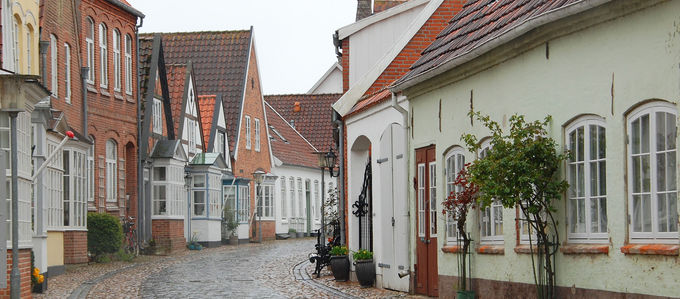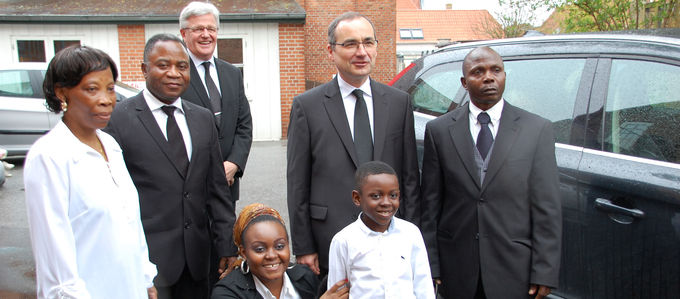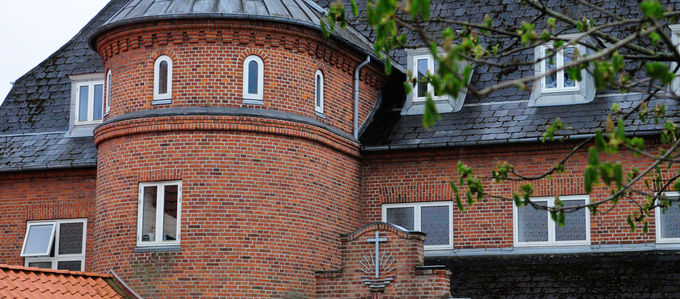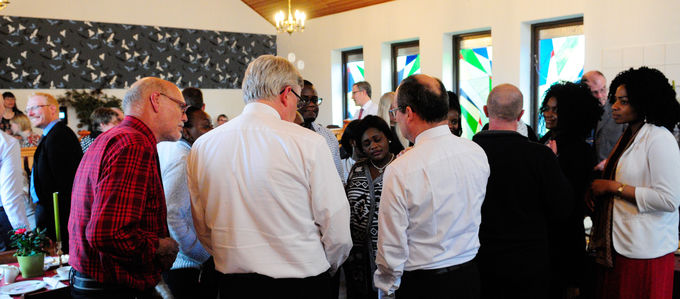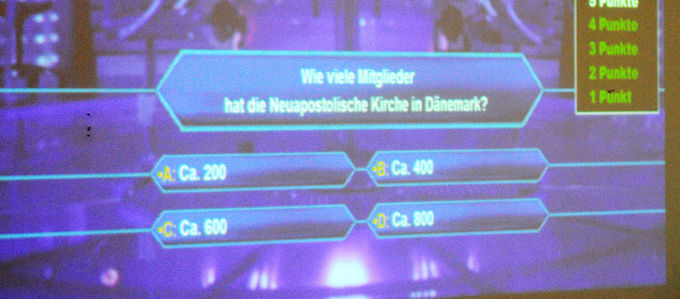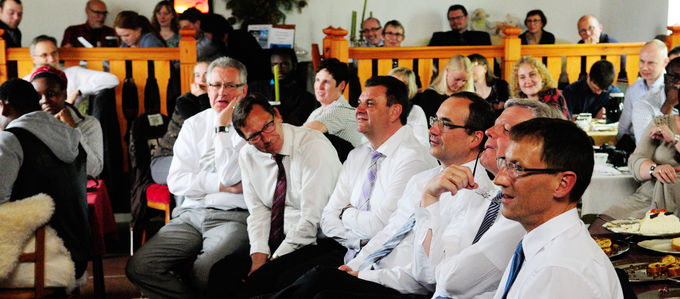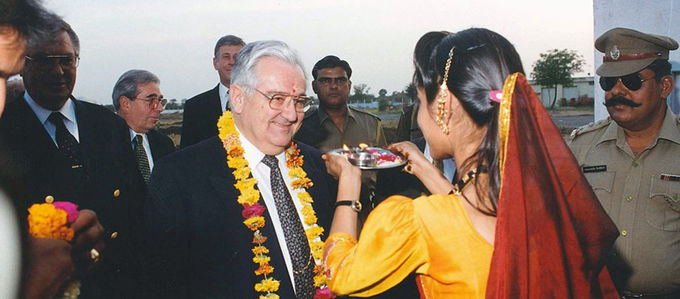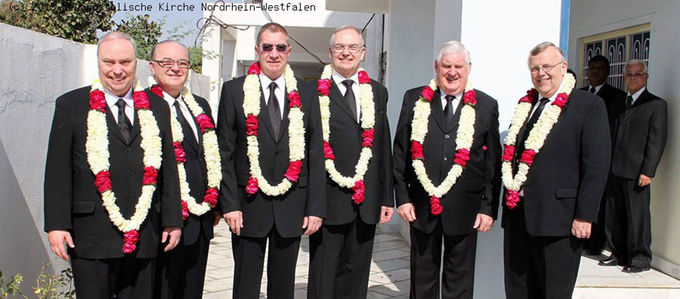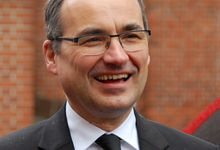A little seed grown big
Small congregation, big impact … Although the membership of the New Apostolic Church in Denmark is small, the country nevertheless has managed to produce a District Apostle. And the roots for the work of the Church on an entire subcontinent lie in Denmark.
The Chief Apostle became acquainted with the realities of New Apostolic life in Denmark through a quiz show. The youth had organized a game of “Who Wants to Be a Millionaire?” on his recent trip there. And thanks to lots of help from the audience they actually managed to hit the jackpot.
Early beginnings with a carpenter
The beginnings of the New Apostolic Church in Denmark go back to Hermann Max Ochsendorf, a carpenter. He was sealed in 1905 and moved to Højer in 1906. Nine years later he moved to Tønder. Before long, people started to gather for services in both towns and by 1922 the first congregations had been established. This was the year that Hermann Ochsendorf was ordained as a Priest: at the first visit of a Chief Apostle to Denmark. In September 1922 Hermann Niehaus and his assistant, Johann Gottfried Bischoff, travelled through Denmark.
Today Denmark counts about 440 New Apostolic Christians in six congregations: Brønshøj (Copenhagen), Hjordkær, Horsens, Sønderborg, Tønder, and Bornholm. Many of the members in Denmark have roots in the Democratic Republic of the Congo. They are descendants of former refugees and live in Denmark in the second and third generation.
The district with 25 ministers is led by District Elder Bjarne Schmidt and District Evangelist Peter Damgaard. The Apostle who is responsible for the region is Jürg Steinbrenner. The District Apostle is Rüdiger Krause. Especially where the work among the youth is concerned, there is a great deal of cross-border cooperation with its German neighbours to the south.
A sealing with an impact
What no one knew then, the divine service that was conducted on 15 December 1968 in the congregation of Tønder proved to be of historic significance. During the service, District Apostle Karl Weinmann sealed a woman from India. Her name was Angel Robinson. She was a tour guide and had come to Denmark with a tour group. During her stay she became acquainted with the New Apostolic congregation in Copenhagen.
“She is an inquisitive woman, who asks hundreds of questions,” District Apostle Weinmann wrote to his Canadian colleague, District Apostle Michael Kraus, happy to be able to share the news that the first person from India had become a member of the New Apostolic Church. “May our heavenly Father bless this seed so that many more of Angel Robinson’s fellow-countrymen can find their way to the salvation work of Jesus Christ.”
From Denmark to India to Australia
In fact, Angel Robinson’s excitement about her faith was so contagious when she returned home several months later that it prompted her family to join as well. In 1970 her son was sealed, the later Apostle John Robinson. In his obituary it says among other things, “He was the door through which the work of the Lord entered India.” Today there are hundreds of thousands of New Apostolic Christians on the Indian subcontinent.
A certain Andrew H. Andersen also has his roots in Denmark. He was born in Copenhagen to Protestant parents in 1951. In 1956 the family left Copenhagen to immigrate to Australia. Through a colleague of his father’s, the Andersen family heard about the New Apostolic Church. And in 1962 Andrew was sealed. Since 2001 he has been leading the New Apostolic Church Australia as District Apostle.
Before God and man
Like other Danish cities that are close to the border with Germany, Tønder is known as a paradise for those wishing to tie the knot. There is less red tape in Denmark than say in Germany, but the marriage is officially recognized in the entire European Union. Year for year, some 2,500 to 3,000 couples get married here, and only about five per cent are from the region.
There is another aspect of marriage in Denmark that differs from marriages in neighbouring Germany, Apostle Steinbrenner reports. While German law requires a civil marriage to precede a more traditional church wedding, Christians in Denmark can legally tie the knot in church. Priestly ministers in Denmark have to take part in a government-sponsored course and renew their licences from time to time. This is how couples can make their vows before God and man at the same time.
Article info
Author:
Date:
Keywords:
Andreas Rother
05.05.2015
India,
Denmark,
Australia,
Congregational life,
People/Personalities


